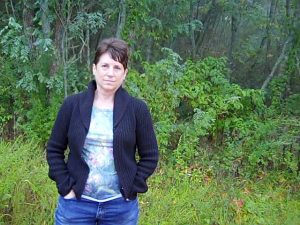
About Resa Nelson:
Resa Nelson is a long-time member of SFWA (Science Fiction Writers of America) and a graduate of the Clarion Science Fiction and Fantasy Writers' Workshop. Resa writes fantasy and mystery/thriller novels about women who are strong, smart, and courageous. Her characters are everyday people faced by overwhelming problems that threaten to destroy the existence they know.
What inspires you to write?
I've been writing fiction since I was 8 years old. For me, writing is like breathing — I can't imagine not doing it. Also, because I'm a petite woman, my life experience has been that in daily life it can be challenging to make myself heard because people take one glance at me and make assumptions. As a writer, that's not a problem. Writing is the one way I have for my voice to be heard.
Tell us about your writing process.
I typically have about 30 unwritten novels in my head. I spend several years thinking about each novel before I write it. When I understand the novel well enough, I write a basic outline using pen and paper. I break the novel into 4 equal parts and write one part at a time, from beginning to end. The way in which any given section ends is my finish line. Once I complete a section, I focus on the next finish line and write toward it. More important, I go swimming first thing in the morning. I swim the American crawl for at least 45 minutes and then cool down with 5 to 15 minutes of breaststroke and sidestroke. While I swim, I think about what I want to write when I get home. That's when I work out any kinks. It's also when important dialog or action rises to the surface. In other words, most of my actual writing is done in the pool. When I get home, I just type what I thought about while I was swimming. My history of swim-and-write goes back to childhood.
For Fiction Writers: Do you listen (or talk to) to your characters?
My characters are so real to me that it feels like they move into my home when I begin a new novel or a new series. I get to know them over time in the same way I get to know real people. My characters are in control of the novel, which is why I keep my outlines simple and basic. That leaves space and freedom for the novel to write itself. I once had a novel where my instinct told me I was headed in a wrong direction. So I called a meeting with the main characters and asked their opinion. They're the ones who explained the problem to me and came up with a solution.
What advice would you give other writers?
Work at your craft. I've been writing for several decades, and I constantly work at my craft. Meaning, I'm always looking for ways to improve my prose, plot, structure, characterization, dialog, etc. I see a trend today of writers who don't appear to care about the craft that much. Working at your craft can happen in lots of different ways: reading books, talking to fellow authors, going to conventions, taking courses, or going to workshops taught by top-notch professional authors.
How did you decide how to publish your books?
I began as a short story writer and was published in magazines and anthologies. My first six novels were published by a traditional publishing house. For many reasons, I decided to test the waters of self-publishing. After one or two years of experimenting and taking courses to learn specifically how to market self-published books, I took a leap of faith, got the publishing rights back for those six novels, and went all in on self-publishing. With the exception of my audio books, I'm 100% self-published now. I think writers typically have one of two goals from being published: to get validation or to make a living. Anyone who wants validation is likely to do better with a traditional publisher. By "validation," I mean proving your work is good enough because an editor accepted it, being nominated for awards, winning awards, speaking at conventions, etc. But traditionally published authors get such a small share of the pie that most make very little money. I always wanted to support myself through my writing. Self-publishing makes that possible.
What do you think about the future of book publishing?
I never would have predicted self-publishing would ever amount to anything more than vanity publishing. I have no idea what's going to happen next, but I'm looking forward to it.
What do you use?: Professional Editor, Professional Cover Designer, Beta Readers
What genres do you write?: fantasy, epic fantasy, sword & sorcery, YA, mystery, thriller
What formats are your books in?: Both eBook and Print, Audiobook
Website(s)
Resa Nelson Home Page Link
Link To Resa Nelson Page On Amazon
Your Social Media Links
Goodreads
Facebook
Twitter
All information in this post is presented “as is” supplied by the author. We don’t edit to allow you the reader to hear the author in their own voice.
